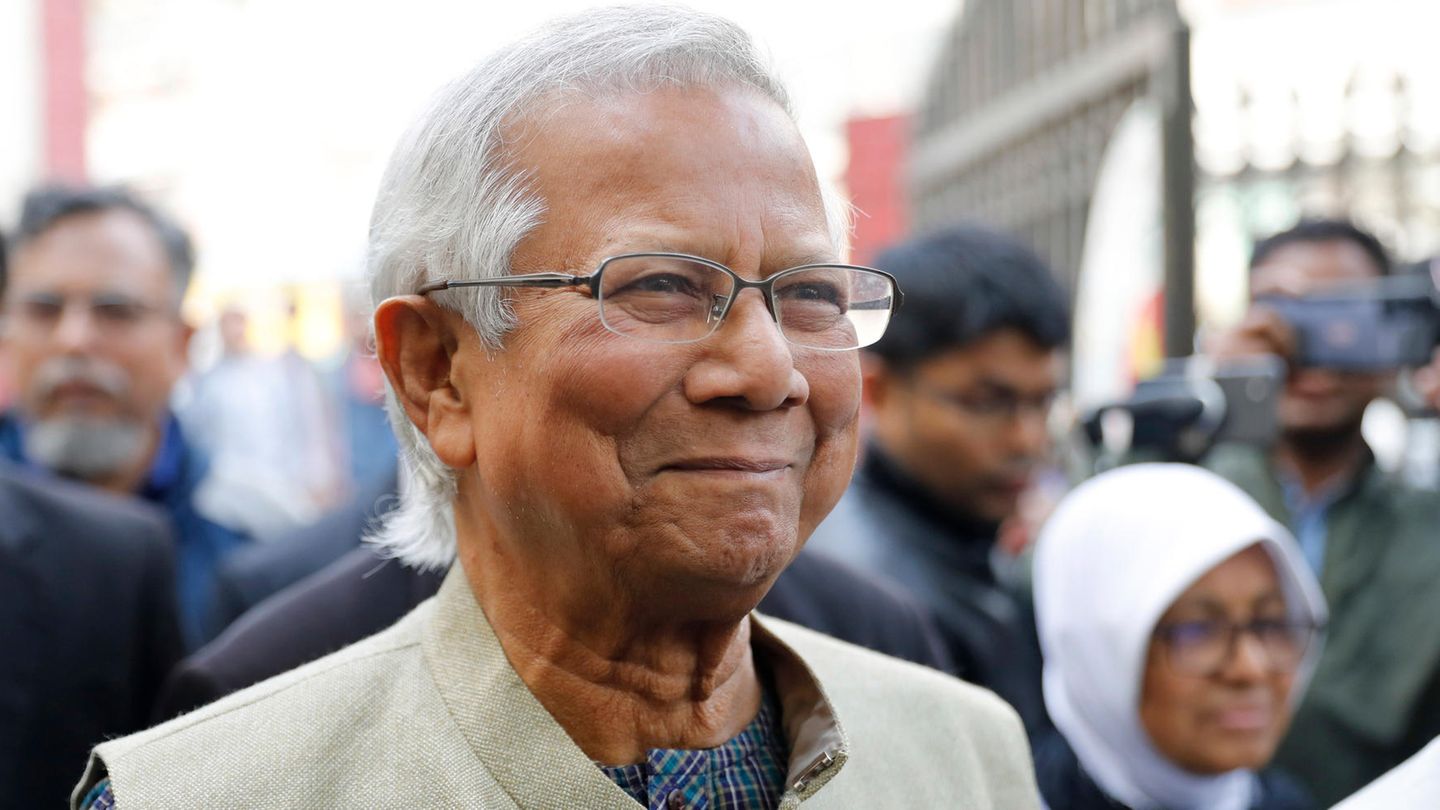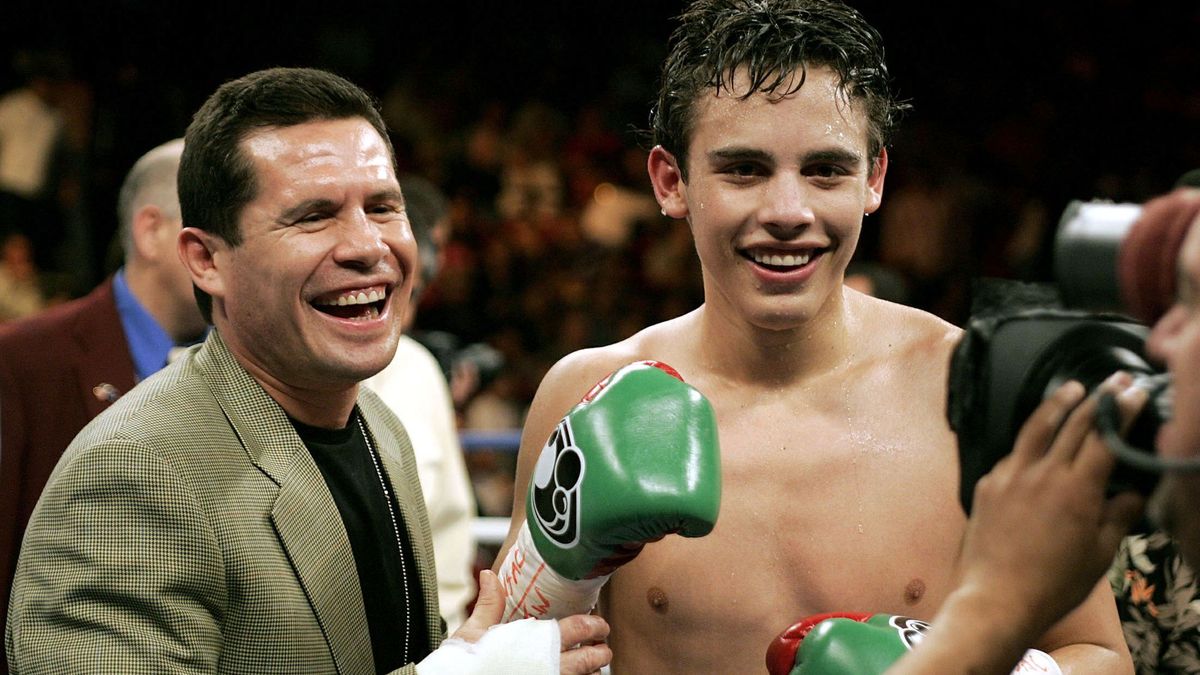When a Nobel Prize winner is at the head of a country, will the violence end? Bangladesh expects a lot from the new transitional government. But some remain skeptical.
In Bangladesh, Nobel Peace Prize winner Muhammad Yunus has been sworn in as head of the transitional government. This was shown in footage on local television. The 84-year-old inventor of microcredit is to remain in power until new elections are held. It was initially unclear when these would take place. He is the preferred candidate of those taking part in the mass protests against the government.
On his return to his homeland, Yunus declared the restoration of law and order to be the most important task. “We cannot take any step forward if the situation of law and order is not restored,” he said at the airport in Dhaka. The 84-year-old was to be sworn in as head of the interim government installed by the military in the evening (local time, 4 p.m. CEST).
“Today is a glorious day for us,” said Yunus. Bangladesh has experienced a “new day of victory” and received a “second independence.” The Nobel Prize winner also called on people to have faith in him and to stop their violence against “everyone, everywhere in the country.”
Students wanted Nobel Prize winner as head of transitional government
Yunus, who was abroad, was nominated as head of an interim government on Tuesday after weeks of mass protests that left at least 455 people dead and the flight of Prime Minister Sheikh Hasina. The long-serving head of government resigned on Monday after the mass protests and deadly clashes between demonstrators and security forces and initially fled to India in a military helicopter.
According to local media, more than 400 people have died in the protests since July. The student protests were initially directed against a quota system for the allocation of public sector jobs, but then resulted in demands for the head of government to resign. Last Monday alone, 122 people were killed in violent clashes with the security forces.
After Hasina’s escape, the decision to appoint Yunus was made at a meeting between President Mohammed Shahabuddin and representatives of the protest movement and the military. According to observers, the armed forces had recently held de facto power in the South Asian country.
The economist – a staunch critic of former Prime Minister Hasina – is the hope of being able to lead the country with its more than 170 million inhabitants out of the crisis. In the 1980s, the economist helped millions of people in the South Asian country out of poverty by granting microcredits. In 2006, he was awarded the Nobel Peace Prize for this.
Bangladesh hopes for improvement
Army chief Waker-Uz-Zaman said in a televised address that he was sure Yunus was capable of “leading us through a beautiful democratic process.” He hoped that a national government would now be formed with the consent of all, said Moynul Islam Pintu, who attended a rally of the former opposition party BNP. “I expect the country to be governed in a friendly manner and that the police will be reformed so that they cannot harass the people.”
The transitional government has an opportunity to lead Bangladesh back towards real democracy, says expert Thomas Kean of the non-governmental Crisis Group. He expects Yunus to want to implement political and economic reforms. However, this could be difficult if the Bangladesh Nationalist Party – the second major party alongside Hasina’s Awami League – pushes for quick new elections.
Hasina, 76, was in power in Bangladesh for 15 years. Her government was accused of human rights violations, including the unlawful imprisonment and killing of opposition members. Yunus was also the subject of more than a hundred criminal proceedings during her time in office. However, only one conviction was made, which, according to his lawyer, was overturned immediately before Yunus returned to Bangladesh.
Hindu minority flees towards India
After the head of government’s resignation, there were reportedly further isolated incidents of violence. There were deaths, most of them supporters of Hasina’s Awami League, it was said. Several police stations were also burned down. At the same time, students took over some of the police’s tasks. For example, they regulated traffic at several intersections in the capital. Others cleaned walls of graffiti directed against the former government.
According to the Indian border guard, after Hasina’s escape, numerous Hindus, who are considered supporters of the former head of government, tried to enter the neighboring country. Several hundred people gathered at various points on the border, it was said. During the protests, several shops and homes belonging to the Hindu minority in Bangladesh were attacked.
Upon his arrival in Dhaka, Yunus tried to calm the conflict: “Every person is our brother” who must be protected, he said. He called Bangladesh “one big family.”
Source: Stern
I have been working in the news industry for over 6 years, first as a reporter and now as an editor. I have covered politics extensively, and my work has appeared in major newspapers and online news outlets around the world. In addition to my writing, I also contribute regularly to 24 Hours World.




